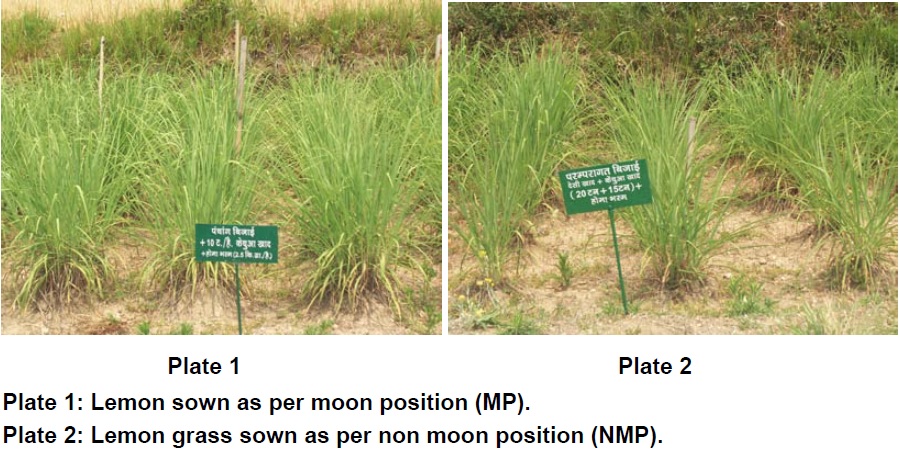PreambleAn experiment was conducted at the Model Organic Farm of CSK Himachal Pradesh Agricultural University, Palampur (31º54’ N and 76º17’ E), Himachal Pradesh, India, to evaluate the effect of various organic management treatments on the productivity and quality of lemon grass (Cymbopogon citratus). Organic inputs (viz. farm yard manure (FYM); vermicompost; agnihotra ash; and neem powder) were added at the time of planting, while Bt + Himbio and the biodynamic preparation BD 500 were sprayed regularly at one month intervals. Crops were sown on dates matching moon and non moon position according to the Biodynamic Planting Calendar. Addition of agnihotra ash along with sowing as per moon position resulted in a higher yield of lemongrass (+124%, +99%) and a higher oil per cent (+155%, +144%) over the control, in both the years of study. Sowing as per moon position may have improved germination rate, water absorption and metabolism of the plants, whereas addition of agnihotra ash may have stabilized the nutrients present in soil. |
Biochemical Efficacy of Homa Organic Farming Practices in Okra (Abelmoschus esculentus)
An investigation was carried out at Main Agricultural Research station, University of Agricultural Sciences, Dharwad, Karnataka during monsoon season 2012, to study response of okra (Abelmoschus esculentus var. Arka Anamika L. Moench) to Homa Organic Farming practices.
PreambleA field experiment laid out in completely randomised block design with 18 treatments replicated thrice was conducted during monsoon season 2012 to study the biochemical efficacy of Homa organic farming practices in okra (Abelmoschus esculentus var. Arka Anamika). |
|
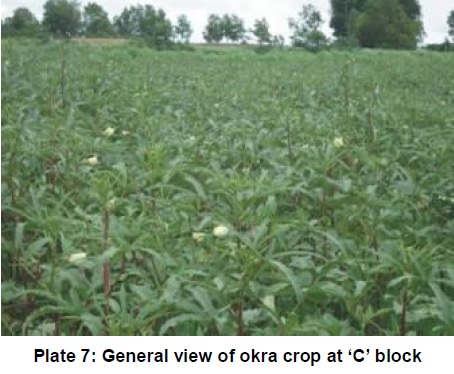 |
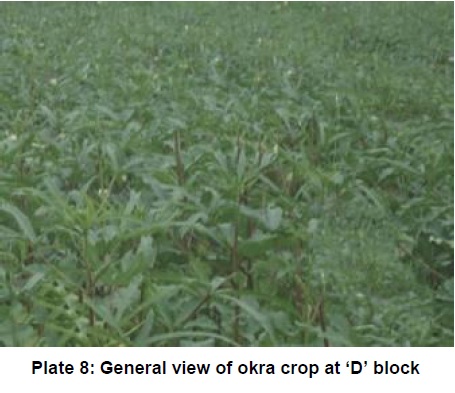 Continue reading “Biochemical Efficacy of Homa Organic Farming Practices in Okra (Abelmoschus esculentus)” Continue reading “Biochemical Efficacy of Homa Organic Farming Practices in Okra (Abelmoschus esculentus)” |
Biochemical Studies on Homa Organic Farming Practices in Cabbage
An investigation was carried out at Main Agricultural Research station, University of Agricultural Sciences, Dharwad, Karnataka during monsoon season 2010, to study response of cabbage (Brassica oleracea var. Saint) to Homa Organic Farming practices.
PreambleA field experiment laid out in Completely Randomised Block Design with 13 treatments replicated thrice was conducted during monsoon 2010 to study the biochemical studies on Homa organic farming practices in cabbage (Brassica oleracea var. Saint).
|
|
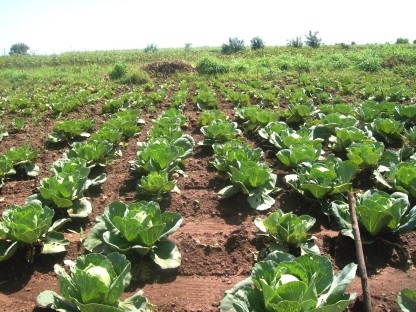 General view of cabbage field in C-block (Homa) |
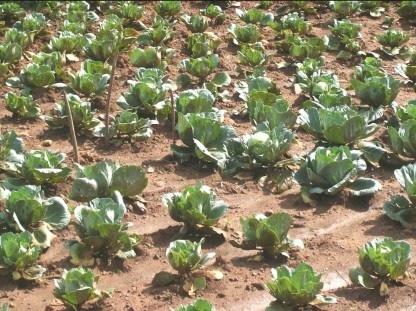 General view of cabbage field in G-block (Control) Continue reading “Biochemical Studies on Homa Organic Farming Practices in Cabbage” |
Response of Tomato to Homa Organic Farming Practices
An investigation was carried out at Main Agricultural Research station, University of Agricultural Sciences, Dharwad, Karnataka during kharif season 2010, to study response of tomato (Solanum lycopersicum L.) to Homa Organic Farming practices.
PreambleThe field experiment was laid out in completely randomised block design with 11 treatments exposed to Homa atmosphere replicated thrice.
|
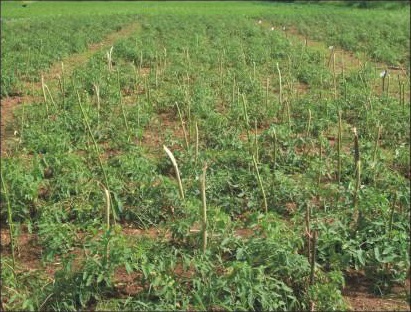 |
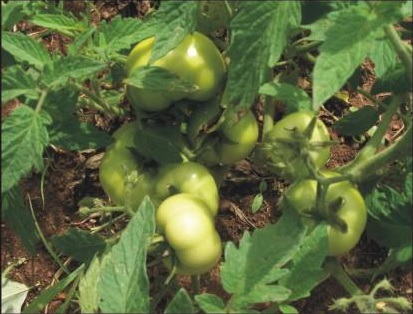 Continue reading “Response of Tomato to Homa Organic Farming Practices” Continue reading “Response of Tomato to Homa Organic Farming Practices” |


